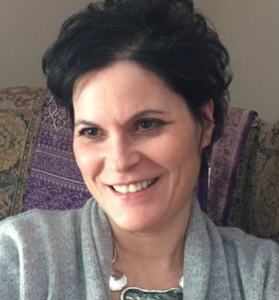It’s Time to Talk About ARFID
Our family has a son with an eating disorder. He’s had it since the age of three, and his condition has not really changed. We found out by accident that he had a food allergy to peanuts (and tree nuts), which happened even earlier than the eating disorder. Certainly, having a food allergy makes the cautiousness around foods – especially “new foods” – even more present.
Though the years have not brought big changes to our son’s eating disorder (he is almost 15, and is still allergic and highly selective with foods), we know that eating disorders are not caused by individuals or circumstances: No one is to blame.
Aversion to trying new foods was something we noticed in our boy as early as the feeding years. People still ask us how long his condition has existed and we still answer, “Since we can recall.” It’s been a long time.
We’d share our experiences and concerns with family, friends, and medical experts, though our explanations and observations were often dismissed. Most reassured us the “picky eating” was just a phase. We felt dismissed and alone in our quest for answers about the definite feeding limitations. It was clear to us that something was not being acknowledged.
Over time, we’ve learned to listen to our “gut feeling” and to advocate for what we are experiencing and for what we need. We never received an actual diagnosis for our son. We accept this, though we hope other families may be heard and believed to get the needed help early on.
Our son is almost 15 now, and he still has the eating disorder. Luckily, there’s a diagnosis that’s finally made it into the DSM-5, and that means a lot. The condition used to be called Selective Eating Disorder (SED) and is now officially Avoidant Restrictive Food Intake Disorder (ARFID). It’s a longer name, but it seems more accurate in describing the often early onset of the disorder (during the feeding years).
We still continue to explain the disorder and refer professionals and anyone else to look up the name and condition, accept it as an actual disorder, and gain awareness about its existence. This is key for families like mine who were dismissed for too long. Recognize and diagnose; accept it and treat it. We accept that a disorder is not a choice and so a big part of our efforts is to make that known to more people. Let’s inform and inspire. It’s Time to Talk About It!
Like all disorders, an eating disorder is not a choice. Our son did not choose to have a disorder, yet he accepts and manages it one day at a time. We’re impressed by his wit, his positive attitude on life, his supportive friends, and his performance at school and on the soccer field. He’s developing well despite the limited selection of foods. He’s physically and mentally fit and has the endurance needed to excel at competitive “travel” soccer. In fact, he plays overseas as part of international tournaments. What to eat and what to bring to those trips can be challenging, but the boy with ARFID is undeterred!
After all these years, his diet is still limited and consists mostly of dried and packaged snacks. Favorite foods remain the crunchy, dried type like potato chips, pretzels, bread sticks, fries, and mostly brand name snacks. Preferred foods are classic finger foods.
As for treatment, we’ve seen allergists, specialists at nationally-renowned centers for eating disorders (teams of occupational therapists, researchers and psychotherapists). Maybe anxiety experts can help. We’ve also explored hypnotherapists, though we have yet to work out a match with someone in our area (Maryland). We’re basically not giving up, though “new food adventures,” eating together as a family, and seeing improved eating are not yet regular happenings in our life.
We don’t push and we don’t give up. We are here to listen, encourage, and withhold judgment regarding a disorder that is real yet still not well-understood. What’s hopeful is to see that our son is thriving in so many ways and is not showing major concerns about how he will manage ARFID in the future. Gotta love that!
Anne Bouchard is a proud advocate for the National Eating Disorders Association (NEDA), and an active fundraiser for programs and services specific to eating disorders (especially ARFID). She’s a parent, spouse, former media advertising professional, and current substitute teacher in Maryland. She lives with her husband, son, and teen daughter in Maryland. Anne continues to advocate for ARFID awareness and treatments. Her fundraising page for ARFID is here.
SOURCES:
Society for Adolescent Health and Medicine. Published by Elsevier Inc., copyr. 2014.
Google Alerts- Anyone can subscribe to getting these. I get alerts for anything coming up on Selective Eating Disorder (SED) since that is the earlier name for ARFID.
Diagnostic and Statistical Manual 5th edition (DSM-5)
Learn more about the symptoms, warning signs, and health consequences of ARFID here.





